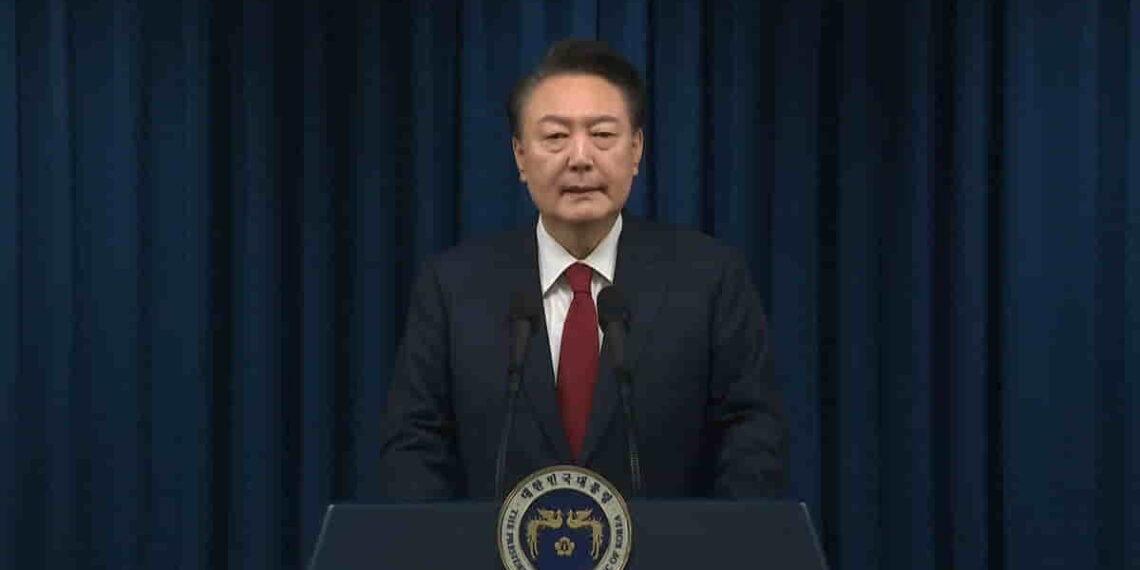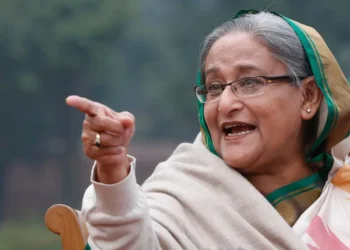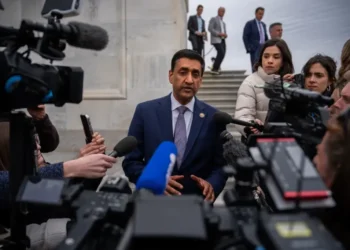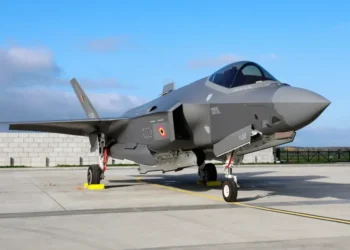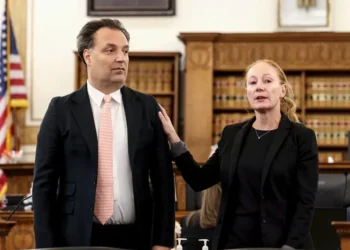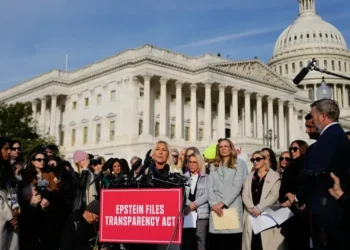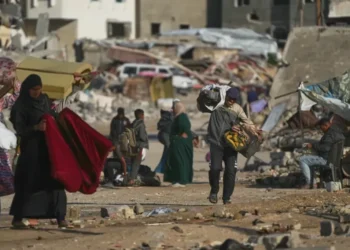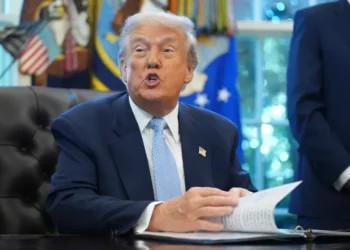South Korea’s President Survives Impeachment but Faces Calls for Resignation
South Korea’s President Yoon Suk Yeol narrowly avoided impeachment on Saturday following his controversial declaration of martial law earlier this week. However, mounting pressure from his own party and opposition lawmakers has left his political future in doubt.
High Drama in Parliament
The impeachment vote was derailed after members of Yoon’s People Power Party (PPP) boycotted the parliamentary session. With only two party members present, one voted against the motion. Opposition lawmakers, visibly frustrated, shouted at the PPP members, accusing them of cowardice. Outside, large crowds gathered at the National Assembly, demanding Yoon’s removal from office.
Martial Law Sparks National Backlash
President Yoon’s sudden attempt to impose martial law—a move unprecedented in over four decades—has drawn fierce criticism and plunged the country into political chaos. Yoon claimed the measure was necessary to address “anti-state activities” by the opposition Democratic Party, which holds a parliamentary majority. However, the decree was struck down just six hours later after lawmakers stormed past soldiers to annul it.
The failed attempt at martial law has triggered outrage across South Korea, a country still haunted by its history of military dictatorships and its hard-fought transition to democracy in the 1980s.
Party and Opposition Turn Against Yoon
Despite blocking the impeachment vote, Yoon’s PPP has joined opposition parties in calling for his resignation. PPP leader Han Dong-hoon stated, “We will continue to push for the president’s orderly resignation to minimize confusion.”
Opposition figures have also been vocal in their criticism. Kim Joon-hyung of the Rebuilding Korea Party said, “The sooner he resigns or is impeached, the better for our country.”
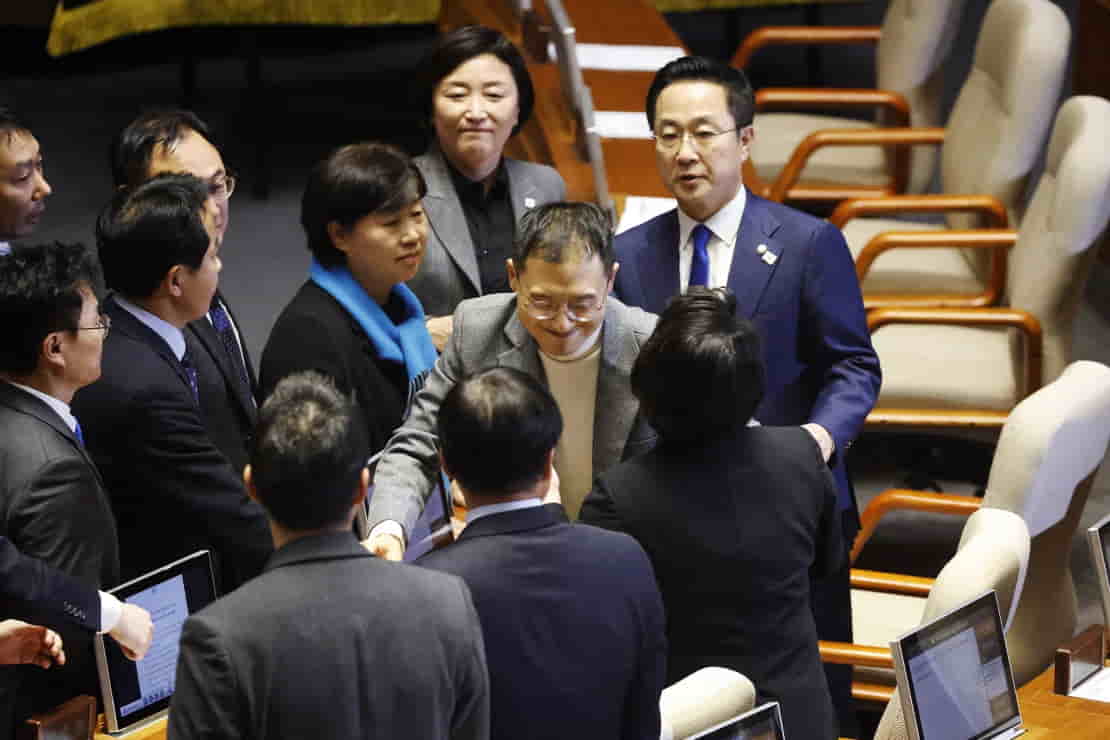
Apology and Responsibility
In his first public address since the martial law controversy, Yoon apologized to the nation. “This emergency martial law declaration stemmed from my desperation as the ultimate responsible party for state affairs,” he said in a two-minute statement.
Yoon expressed regret for the anxiety and inconvenience caused to citizens and vowed to take full legal and political responsibility. He assured the public that there would be no repeat of such actions.
“I will entrust my party with methods to stabilize the political situation, including the remainder of my term,” Yoon concluded, bowing deeply as he left the podium.
New Allegations Deepen the Crisis
As Yoon’s political support dwindles, new allegations have surfaced, intensifying calls for his removal. Reports indicate that Yoon created an arrest list during the martial law crisis, instructing the National Intelligence Service (NIS) to “clean everything up.”
Hong Jang-won, the NIS’s first deputy director, confirmed the existence of the list, which included opposition leader Lee Jae-myung and PPP leader Han Dong-hoon. Lawmakers briefed on the matter described the plan as “crazy,” with even military officials reportedly shocked by the president’s actions.
What’s Next?
The opposition has already submitted another impeachment motion, scheduled for debate on Wednesday, December 11. Meanwhile, protests and political pressure are growing, with many doubting Yoon’s ability to complete his term.
For South Korea, the turmoil surrounding Yoon’s presidency marks a critical moment in its democratic history, testing the resilience of its political institutions and public trust.
This article was rewritten by JournosNews.com based on verified reporting from trusted sources. The content has been independently reviewed, fact-checked, and edited for accuracy, neutrality, tone, and global readability in accordance with Google News and AdSense standards.
All opinions, quotes, or statements from contributors, experts, or sourced organizations do not necessarily reflect the views of JournosNews.com. JournosNews.com maintains full editorial independence from any external funders, sponsors, or organizations.
Stay informed with JournosNews.com — your trusted source for verified global reporting and in-depth analysis. Follow us on Google News, BlueSky, and X for real-time updates.
